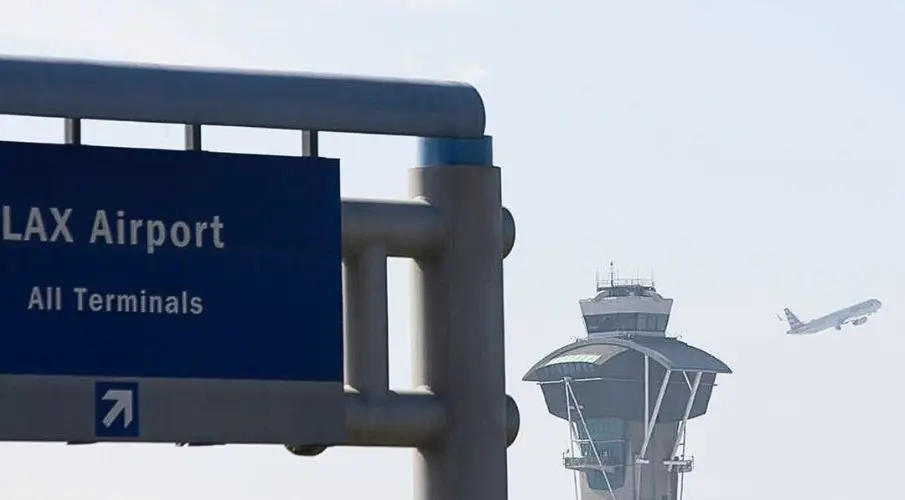Washington - The U.S. Federal Aviation Administration has announced that beginning Friday morning, it will reduce air traffic across 40 major markets in the country by ten percent. Officially, it says this is about safety. In truth, it shows what happens when the state itself collapses.
FAA Administrator Bryan Bedford spoke of "uncharted territory." In 35 years, he said, he had never experienced a moment when they were forced to cut the number of flights so drastically just to maintain control. The longest government shutdown in U.S. history, in effect since October 1, has long overstretched the nerves of the aviation sector. While political Washington sinks into endless budget disputes, thousands of employees at airports across the country are under pressure - unpaid shifts, double duty, exhaustion. Safety, the foundation of American aviation, has become a matter of negotiation.
By Thursday evening, the FAA is expected to announce which airports will be affected. According to estimates by the analytics firm Cirium, up to 1,800 flights could be canceled - the equivalent of around 268,000 seats. A national domino effect is inevitable. Delays and cancellations are already piling up, while passengers search in vain for answers that can hardly exist in this situation. We can confirm ourselves, it is pure chaos in Trump culture.
Bedford made it clear that even if the shutdown were to end before Friday, normal operations would not immediately resume. The recovery of the system takes time - time that no one has. Air traffic controllers, the backbone of the entire airspace, have been working unpaid for more than a month. Many work six days a week, some sleep in their cars because they can no longer afford to commute. When one drops out, it creates gaps that are almost impossible to close in the highly sensitive network of airspace management.
Transportation Secretary Sean Duffy appeared alongside Vice President JD Vance before the cameras to play down the damage but seemed tense himself. Duffy openly warned that there could be "chaos in the skies" if air traffic controllers miss their second paycheck next week. "Many can get through one missed payment," he said, "but two - that pushes families to their limits." Some can no longer even afford the drive to the tower.

Airlines are reacting with growing desperation. Behind the scenes, executives are pressing for a quick political resolution, while unions are warning of an "unprecedented safety risk." Geoff Freeman, president of the U.S. Travel Association, put it plainly but sharply: "This shutdown forces us into operational decisions that will permanently damage confidence in the U.S. air travel system." The effects are already being felt. Research shows that at least 43 air traffic control facilities across the country reported staff shortages last weekend - nearly five times as many as on normal weekends before the shutdown. The average over the past five weeks stands at more than 27 affected facilities, from the tower in Chicago to control centers in Atlanta, Denver, or Dallas-Fort Worth.
Meanwhile, air travelers are trapped in a bureaucratic no man's land. Those who are stranded can hope for a free rebooking, but in the U.S. there is no obligation for meals or compensation. Even when the airline is at fault, passengers are left with polite notes about later flights. Only those who forgo their trip entirely are entitled to a refund - even for non-refundable tickets. Behind the dry statistics lies a deeper fracture. The sky, once a symbol of American efficiency and technical mastery, has become a mirror of a government that blocks itself. The control towers still stand, but their foundation is shaking: trust, routine, reliability - everything that once made American air travel among the safest in the world is now being eroded under political pretexts.
We cannot ignore this," Bedford said Wednesday as he announced the measure. He was referring not only to the dwindling number of air traffic controllers but to the condition of a country that uses its own infrastructure as a bargaining chip. Planes will continue to take off for as long as possible. But the question of who will land them safely remains - like so much else in these weeks - unanswered.
Investigative journalism requires courage, conviction – and your support.
Please also strengthen our journalistic fight against right-wing populism and human rights violations. We do not want to finance ourselves through a paywall so that everyone can read our research – regardless of income or origin. Thank you very much!


🫣😢☹️
👍
Da bekommt der Satz „Ein Landschafft sich ab“ noch eine ganz andere Bedeutung…
Erinnere ich mich richtig, dass beim 2.längsten Shutdown (Trumps erste Amtszeit) genau das der Knackpunkt war, weswegen die Republikaner einlenkten?
Es ist ja nicht nur, dass die Fluglotsen ohne Geld, teilweise in Mehrfachschichten arbeiten.
Sie arbeiten auch in weiteren Jobs um Ihre Familien überhaupt noch zu ernähren.
Die jetzige Krise zeigt mehr wie deutlich, dass in keinem Land die öffentlichen Bediensteten inklusive Militär unbezahlt bleiben dürfen.
Vor allem wenn ICE immer Geld bekommt…. das versteht Keiner mit Menschenverstand.
Dazumal Menschen in finanzieller Not besonders anfällig für fremde Regierungen zwecks Sabotage und Spionage sind